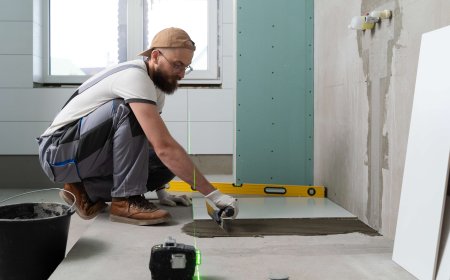Hot Water Tank Maintenance Checklist for Homeowners
Essential hot water tank maintenance checklist for homeowners—boost efficiency, prevent issues, and extend your tank’s lifespan easily.

Your hot water tank is one of the unsung heroes of your home. From warm showers to washing dishes, it works around the clock to make your daily life comfortable. But like any other appliance, it requires regular care to avoid costly breakdowns or prematurehot water tank replacement.
To help you keep things running smoothly, weve created this practical, step-by-stephot water tank maintenance checklistespecially handy for homeowners who want to prevent emergencies, detect issues early, and get the most from their system.
1.Inspect the Area Around the Tank
Start with a visual check. Look around the base of the tank for signs of moisture, rust, or pooling water. Even small puddles could indicate a slow leak that may worsen over time. If you notice corrosion or water damage, it could be time to consult a professional forhot water tank replacementbefore the issue escalates.
Pro Tip:If you spot unexplained moisture, search foremergency plumbers near medont wait for a major flood.
2.Check the Pressure Relief Valve
The pressure relief valve is a critical safety feature that prevents your tank from over-pressurizing. Carefully lift the valves lever to let some water out, then release it. You should hear a gurgling sound as the valve allows water to exit through the discharge pipe.
If nothing happensor worse, water keeps flowing afterwardyou may need to replace the valve or contact a licensed plumber immediately.
3.Drain and Flush the Tank Annually
Over time, sediment builds up inside your hot water tank. This not only reduces efficiency but also causes banging noises and stress on the internal lining. At least once a year, drain and flush your tank to remove sediment and improve performance.
Heres a quick overview:
-
Turn off the power or gas supply.
-
Attach a hose to the drain valve.
-
Let the tank empty fully.
-
Open the cold water valve briefly to stir up and remove remaining sediment.
-
Close the valves and restart the system.
Not comfortable doing it yourself? Contactemergency plumbers near mewho specialize in safe and clean water heater maintenance.
4.Inspect for Rust and Corrosion
Rust on the tank or in the hot water itself is a red flag. It could mean your tanks internal anode roddesigned to attract corrosive elementsis spent. Replacing this rod can significantly extend your tank's life.
If rust is already leaking through or youre noticing brown-tinted water, the safest choice might be ahot water tank replacement. Acting early saves time, money, and stress.
5.Check the Temperature Settings
Make sure the thermostat is set between 120130F (4954C). This range is safe, energy-efficient, and helps reduce the risk of scalding. Higher settings not only waste energy but also speed up wear and tear.
If your tank seems to run out of hot water quickly or isnt heating effectively, it could be a thermostat or heating element issue that needs repair or replacement.
6.Use a Camera Plumbing Inspection (If You Suspect a Hidden Leak)
Some leaks or plumbing issues can be hard to locate, especially if theyre within your homes walls or underground. Thats where acamera plumbing inspectionbecomes essential.
Plumbers likeSab Tech Plumbinguse high-resolution cameras to locate cracks, blockages, and other problems without tearing up floors or walls. This is especially useful if your hot water tank is part of a larger issue involving hidden leaks or drain blockages.
7.Know the Age of Your Tank
Most hot water tanks last around 8 to 12 years. If yours is reaching this ageor already past itits wise to start planning for ahot water tank replacement. Dont wait for a sudden failure. Proactive replacement ensures youre not left without hot water when you need it most.
Youll also enjoy the benefits of newer, more energy-efficient models that can lower your monthly utility bills.
When to Call the Pros
While homeowners can handle many routine checks themselves, some issues demand professional help. If you notice any of the following, reach out toemergency plumbers near me:
-
Leaks from the tank or plumbing connections
-
Discolored or smelly water
-
No hot water or inconsistent temperatures
-
High-pitched or banging noises from the tank
Companies likeSab Tech Plumbingoffer expert services including 24/7 emergency repairs,camera plumbing inspection, and efficienthot water tank replacement. Their certified plumbers ensure your home stays safe and your water flows smoothly.
Final Thoughts
Regular maintenance of your hot water tank isnt just about preventing emergenciesits about peace of mind, savings, and system longevity. Follow this checklist yearly, and dont hesitate to get expert help when needed.
A well-maintained tank lasts longer, works better, and gives you one less thing to worry about in your busy home life.











































